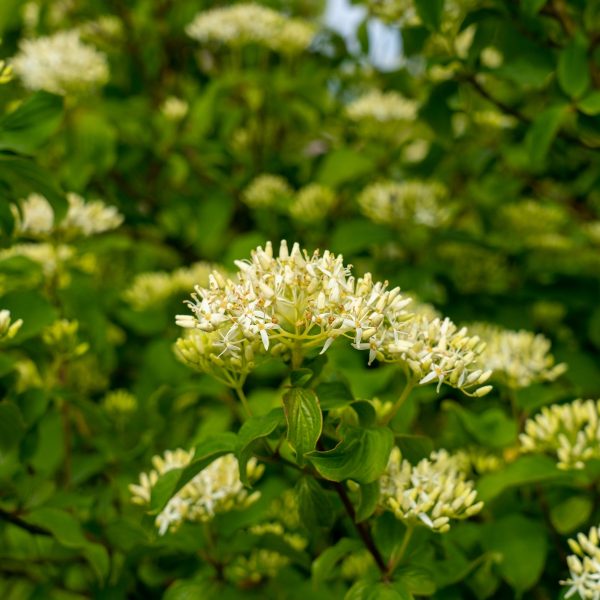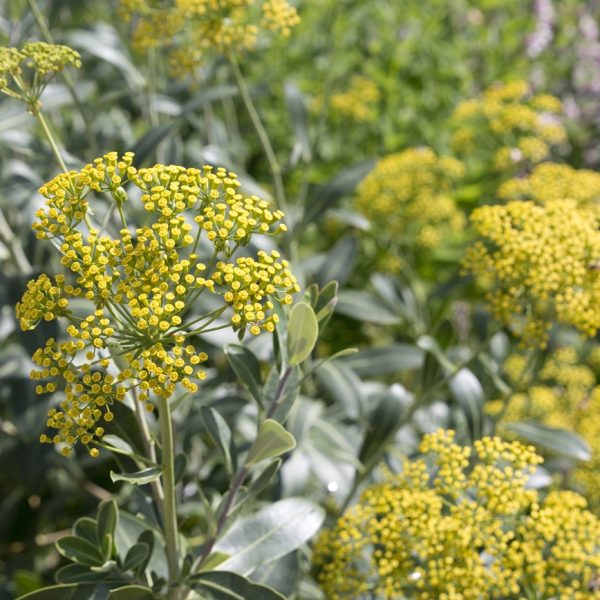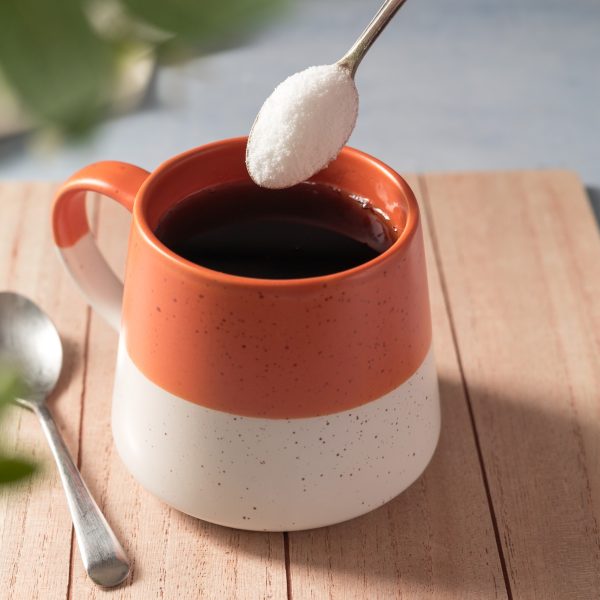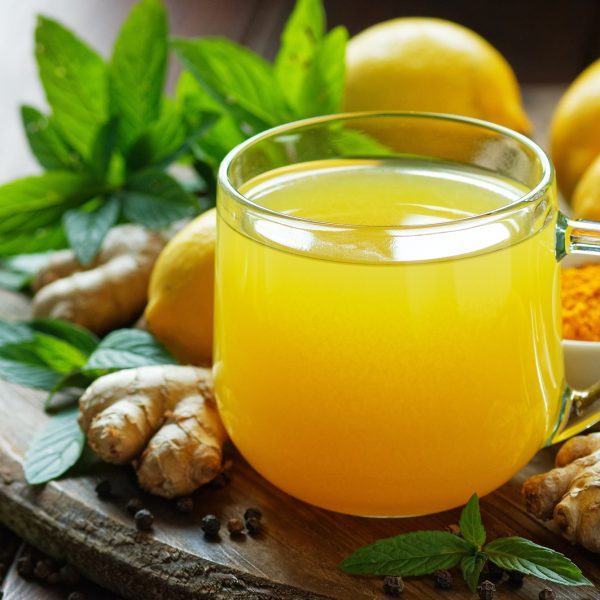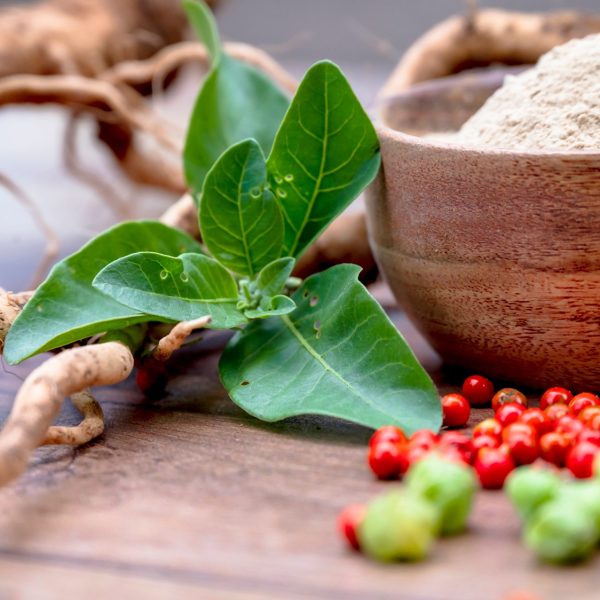One of the wonderful things about herbalism is that it is so accessible. We can make nutritious foods that are both delicious and healing. In this article we share some of the finest culinary herbs and their medicinal properties.
Cinnamon bark (Cinnamomum spp)
Spicy and sweet with a heating and drying quality, cinnamon is a renowned spice for invigorating circulation and warming digestion. Recent research has validated its age-old use for reducing blood sugar levels and resisting weight gain. It’s a true tonic that protects and brings strength.

Traditional descriptions of cinnamon emphasised its warming qualities as well as its role in helping digestion. Consider using cinnamon for any conditions where you feel the cold, for example in respiratory infections, joint pains, and particularly if you want to help with a digestive problem where you instinctively look for warmth (such as where symptoms are helped by a hot water bottle).
It has long been used as a women’s remedy, for menstrual and other pains, especially when these are relieved by warmth. Cinnamon combines especially well with ginger. A fresh ginger and cinnamon tea will provide instant relief and even healing at the first sign of a cold, chest or upper respiratory infection. Cinnamon is particularly useful if you are recovering from an illness or chronic fatigue condition, and again especially when you are feeling the cold. It will help restore a healthy appetite and reduce the many digestive and abdominal problems that are associated with being run down.
Most of the traditional reputation for cinnamon has yet to be tested by modern research. Published papers focus on prospects that different species of cinnamon may affect blood sugar control, particularly in diabetic conditions.
Here there is evidence that cinnamon reduces tissue resistance to insulin, decreases inflammatory markers, and lowers glucose, lipids, and blood pressure in people with ‘metabolic syndrome’ (‘insulin resistance’ or pre-diabetic state) (2). There are similar benefits in people with fatty liver problems and even with healthy subjects. An interesting extension of this benefit is to polycystic ovary syndrome, which is marked by disturbances in blood sugar control. Women may also find cinnamon helpful to relieve menstrual pains (4). Recently, other trials have explored the beneficial prospects of cinnamon in Alzheimer’s disease (3), arthritis, and arteriosclerosis.
Diabetes
A triple blind randomised controlled trial was carried out to investigate the efficacy of cinnamon supplements in patients with type 2 diabetes mellitus. 140 patients with the conditions were randomly assigned either cinnamon bark powder or placebo in 500 mg capsules. Dosage was taken twice a day for a period of 3 months.
The results shat that cinnamon improves; anthropometric parameters, glycemic indices and lipid profile in patients with type II diabetes. There was a significant improvement, specifically seen in patients with higher baseline BMI (1).
Alzheimer’s
A comprehensive review was carried out on the available data from a number of scientific databases to investigate the effects of a number of cinnamon polyphenols with oxidative stress and pro-inflammatory signalling pathways in the brain, with a view to understanding how cinnamon may benefit in Alzheimer’s disease. A number of interesting correlations and findings were discussed, including one in which there is a possible connection between diabetes and Alzheimer’s disease. The review discusses a number of mechanisms by which cinnamon and its compounds are repeatedly found to have neuroprotective properties via a number of different mechanisms (3). Further research is required to identify the therapeutic efficacy and safety for using cinnamon in Alzheimer’s disease, particularly using clinical trials.
Fennel seed (Foeniculum vulgare)

This sweet seed is warming and balances digestion. Having hundreds of tiny flowers, the aroma of fennel lightens digestion and, like its ascendant flower head, it spreads outwards, thus preventing congestion and stagnation in the abdomen and chest. The tea is an ideal way to benefit from fennel, useful to help children’s digestive colic and encourage the flow of a new mother’s breastmilk.
Fennel’s qualities were understood as usual from the characteristic taste which comes from its essential oils. These relax smooth muscle and relieve lower abdominal spasms and bloating in the digestive tract, known as a ‘carminative’ effect. Although a ‘heating’ herb, it benefits digestion without aggravating inflammation.
Fennel is also an effective expectorant within the respiratory system, encouraging the release of stuck mucous and catarrh. Fennel is particularly supportive to the female reproductive system, encouraging efficient menstruation and reducing the painful and spasmodic symptoms of dysmenorrhea. Its anti-spasmodic activity also extends to muscular spasms and pain. For breastfeeding mothers, fennel will also promote efficient lactation. Fennel has increasingly shown to be a useful women’s remedy (5). It is an effective and safe treatment to reduce menstrual pain and duration (6), premenstrual syndrome (7), menopausal symptoms in postmenopausal women (8), and was also found effective in menopausal women with depression and anxiety disorders (9). In a separate study fennel vaginal cream was found to be an effective means of easing sexual activity in postmenopausal women (10). There is some evidence that fennel does relieve colic in children and infants (11).
Ginger root (Zingiber offinalis)

Ginger is warming and pungent. This is the key to its action and formidable reputation. Its constituents shogaols and gingerols stimulate the circulation, particularly the peripheral arterial circulation, making it a primary choice for improving all forms of circulatory inefficiencies and easing congestion throughout the body. It can be thought of as an inspired detox agent, bringing more healing blood into the tissues.
It provides warming relief from inflamed and painful musculoskeletal conditions. Ginger will improve peripheral circulation during a fever, encouraging diaphoresis and an increased level of perspiration.
Its heating properties translate into other benefits. In the airways the result is increased blood supply to the mucosa and loosening of mucus congestion. In the digestive system there is also increased mucosal blood supply that leads to improved digestive secretions; with the volatile oil content there is added antispasmodic activity that helps reduce colic as well as the spasm that generates nausea and vomiting.
A review of six double-blind, randomized controlled trials with a total of 675 participants has confirmed that ginger is effective in relieving the severity of nausea and vomiting during pregnancy. The review also confirmed the absence of significant side effects or adverse effects on pregnancy outcomes (12). There are a number of earlier reviews demonstrating benefits for reducing nausea after operations (13), and in motion sickness (14). It also activates digestive enzymes to increase digestive performance (15).
Both the heat-generating constituents and the volatile oils in ginger are believed to explain why so many people with arthritis experience reductions in their pain levels and improvements in their mobility when they consume ginger regularly. It shows promise in reducing arthritic pain (16). Its effects in relieving spasm extend to benefits for painful periods (17).
It has been shown to reduce many markers of inflammatory activity (18), especially those associated with metabolic syndrome, obesity and prediabetic conditions (19). There is evidence that these effects, possibly mediated by reducing the inflammatory activity of fat cells, can translate into benefits for the control of obesity (20).
Thyme leaf (Thymus vulgaris)

The essential oil of thyme is the major influence in the antispasmodic action of the herb, seen in relaxing airway spasm and nervous coughing, and as a carminative effect in the digestive tract. The oil’s most notable constituents are thymol and carvacrol which are both notably antiseptic.
In the form of the whole herb this effect is most likely to contribute to probiotic benefits in the gut, and locally in the mouth, rather than being seen as a substitute antibiotic. The oil as a whole does however contribute to the expectorant action of the herb, helping to clear the passages as it is expelled through the airways.
As well as the immediate reflex hit from the taste buds of the strong essential oil content, the bitters in thyme stimulate digestive activity, while the tannins provide an appreciable local astringent effect.
Most of the clinical trial reports for thyme are when this is combined in blends with other remedies like primrose root and ivy leaf. There are no reliable research studies for the effects of the herb on its own.
Adding thyme to olive oil compared to consuming olive oil alone decreased LDL levels in subjects with high cholesterol levels. This was linked to improved bifidobacterial levels in the gut microbiome (21).
Thyme oil on its own is very antibacterial and completely inhibited bacterial growth at concentrations of less than 2% (22). An important ingredient here is the often overlooked carvacrol which has its own pronounced antiseptic activity (23).
Some of this activity is also transferred to decoctions and to some extent infusions, with the resulting aqueous extractions active particularly against gram-positive (Staphylococcus aureus and Staphylococcus epidermidis) and gram-negative (Escherichia coli, Klebsiella spp., Pseudomonas aeruginosa, Enterococcus aerogenes, Proteus vulgaris and Enterobacter sakazakii) bacteria (24). This profile adds to the view that the bacteriostatic value of whole thyme preparations is on the gut microbiome.
Turmeric root (Curcuma longa)
Consider adding turmeric to your daily routine for any long-term inflammatory condition, including with joint pain and skin problems. This is not an unusual measure: the average turmeric consumption in India is several grams per day.

The focus in the traditional reputation of turmeric is on the digestive system. This is key to its benefits on inflammatory problems. The gut turns out time and again to be where chronic inflammations originate and provides many important mechanisms to reduce them. Turmeric is particularly worth trying if there is inflammation within the gut; inflammatory bowel disease like ulcerative colitis and Crohn’s may often benefit from regular supplementation with turmeric and there seem to be very few such cases where this has exacerbated the conditions.
Turmeric has wider benefits on gut health and as a prebiotic could be an important element in a programme to build a healthy gut microbiome, perhaps after antibiotic therapy or after any depleting illness. It is certainly worth trying for irritable bowel (IBS) symptoms and various forms of indigestion.
It also has a persistent reputation in helping jaundice and what we now refer to as hepatitis. It can also be considered with gallbladder problems or bile stones without risk of exacerbating this condition.
Turmeric is a warming, ‘drying’ spice in the same category as ginger (to which it is related), black pepper and chillies. So look to turmeric particularly if symptoms are worse in cold and damp, which is often the case with arthritic problems.
Women will often find turmeric useful to relieve a variety of menstrual problems, including where there is evidence of pelvic inflammation (tenderness in the region especially mid-month, vaginal discharge, bloating) and where symptoms are relieved by a hot water bottle.
Effects on inflammation from gut wall
Curcumin has been shown to reduce the activity of gut wall proinflammatory factors, including cyclooxygenase-2 (COX-2), 5-lipoxygenase (LOX), inducible nitric oxide synthase (iNOS), TNF-a, IL -1, -2, -6, -8 and -12, TLR 4, and Nf-kappa-β (25).
Importantly curcumin mends intestinal cell wall junctions, blocks gut surface enzymes (e.g. alkaline phosphatase), transcription factors, and growth factors, and prevents bacterial or virus infection from the intestine. This may be the key to the wider effects on inflammation throughout the body. One research team has demonstrated that curcumin can decrease in the release of gut bacteria-derived lipopolysaccharide (LPS) into circulation by maintaining the integrity of the intestinal barrier function (26). This could explain the role of curcumin in benefiting metabolic diseases such as diabetes, atherosclerosis, and kidney disease (27). It has also shown promise in the management of local gut inflammatory disease (28), including Crohn’s disease (29).
Prebiotic effects
Turmeric has been shown to beneficially alter the gut microbiome (30), with relatively more Lactobacillus and Bifidobacter populations and fewer pro inflammatory Enterobacteria and Enterococci (31); its effect in increasing bile flow adds to its stabilising effects on the microbiome (32).
Effects on gut function
Adding turmeric to curry meals shortened small-bowel transit time, suggesting that turmeric can increase bowel motility (33). Turmeric has calcium-channel blocking spasmolytic effects on the gut wall greater than either verapamil or curcumin alone. These findings added to the effect on bile above reinforce the view that turmeric can stabilise gut motility from either extreme.
Effects on leaky gut
Benefits have been observed in a number of test models (34). The role of leaky gut in a wide range of autoimmunological and other chronic inflammatory conditions is widely accepted.
References
- Zare, R., Nadjarzadeh, A., Zarshenas, M.M., Shams, M. and Heydari, M. (2019). Efficacy of cinnamon in patients with type II diabetes mellitus: A randomized controlled clinical trial. Clinical Nutrition, 38(2), pp.549–556. doi:10.1016/j.clnu.2018.03.003.
- Medagama, A.B. (2015). The glycaemic outcomes of Cinnamon, a review of the experimental evidence and clinical trials. Nutrition Journal, [online] 14(1). doi:10.1186/s12937-015-0098-9.
- Momtaz, S., Hassani, S., Khan, F., Ziaee, M. and Abdollahi, M. (2018). Cinnamon, a promising prospect towards Alzheimer’s disease. Pharmacological Research, 130, pp.241–258. doi:10.1016/j.phrs.2017.12.011.
- Jahangirifar M, Taebi M, Dolatian M. The effect of Cinnamon on primary dysmenorrhea: A randomized, double-blind clinical trial. Complementary Therapies in Clinical Practice. 2018;33:56-60. doi:10.1016/j.ctcp.2018.08.001
- Mahboubi M. (2019) Foeniculum vulgare as Valuable Plant in Management of Women’s Health. J Menopausal Med. 25(1): 1–14
- Ghodsi Z, Asltoghiri M. (2014) The effect of fennel on pain quality, symptoms, and menstrual duration in primary dysmenorrhea. J Pediatr Adolesc Gynecol. 27(5): 283–286
- Maleki-Saghooni N, Karimi FZ, Behboodi Moghadam Z, Mirzaii Najmabadi K. (2018) The effectiveness and safety of Iranian herbal medicines for treatment of premenstrual syndrome: A systematic review. Avicenna J Phytomed. 8(2): 96–113
- Bekhradi R, Mehran A. (2017) Effect of Foeniculum vulgare Mill. (fennel) on menopausal symptoms in postmenopausal women: a randomized, triple-blind, placebo-controlled trial. Menopause. 24(9): 1017–1021
- Ghazanfarpour M, Mohammadzadeh F, Shokrollahi P, et al. (2018) Effect of Foeniculum vulgare (fennel) on symptoms of depression and anxiety in postmenopausal women: a double-blind randomised controlled trial. J Obstet Gynaecol. 38(1): 121–126
- Abedi P, Najafian M, Yaralizadeh M, Namjoyan F. (2018) Effect of fennel vaginal cream on sexual function in postmenopausal women: A double blind randomized controlled trial. J Med Life. 11(1): 24–28.
- Harb T, Matsuyama M, David M, Hill RJ. (2016) Infant Colic-What works: A Systematic Review of Interventions for Breast-fed Infants. J Pediatr Gastroenterol Nutr. 62(5): 668–686
- Borrelli F, Capasso R, Aviello G, et al (2005). Effectiveness and safety of ginger in the treatment of pregnancy-induced nausea and vomiting. Obstet Gynecol. 105(4): 849-56
- Chaiyakunapruk N, Kitikannakorn N, Nathisuwan S, Leeprakobboon K, Leelasettagool C. The efficacy of ginger for the prevention of postoperative nausea and vomiting: a meta-analysis. Am J Obstet Gynecol. 2006;194(1):95–99
- Lien HC, Sun WM, Chen YH, Kim H, Hasler W, Owyang C. Effects of ginger on motion sickness and gastric slow-wave dysrhythmias induced by circular vection. Am J Physiol Gastrointest Liver Physiol. 2003;284(3): G481–G489
- Haniadka R, Saldanha E, Sunita V, et al. (2013) A review of the gastroprotective effects of ginger (Zingiber officinale Roscoe). Food Funct. 4 (6):845–855.
- Al-Nahain A, Jahan R, Rahmatullah M. (2014) Zingiber officinale: A Potential Plant against Rheumatoid Arthritis. Arthritis. 159089.
- Daily JW, Zhang X, Kim DS, Park S. (2015) Efficacy of Ginger for Alleviating the Symptoms of Primary Dysmenorrhea: A Systematic Review and Meta-analysis of Randomized Clinical Trials. Pain Med. 16 (12): 2243–2255.
- Grzanna R, Lindmark L, Frondoza CG. (2005) Ginger – an herbal medicinal product with broad anti-inflammatory actions. J Med Food. 8(2): 125–132.
- Wang J, Ke W, Bao R, Hu X, Chen F. (2017) Beneficial effects of ginger Zingiber officinale Roscoe on obesity and metabolic syndrome: a review. Ann N Y Acad Sci. 1398 (1): 83–98.
- Ebrahimzadeh Attari V, Malek Mahdavi A, Javadivala Z, et al. (2018) A systematic review of the anti-obesity and weight lowering effect of ginger (Zingiber officinale Roscoe) and its mechanisms of action. Phytother Res. 32(4): 577–585
- Martín-Peláez S, Mosele JI, Pizarro N, et al. (2017) Effect of virgin olive oil and thyme phenolic compounds on blood lipid profile: implications of human gut microbiota. Eur J Nutr. 56(1): 119–131
- Mullen KA, Lee AR, Lyman RL, et al. (2014) Short communication: an in vitro assessment of the antibacterial activity of plant-derived oils. J Dairy Sci. 97(9): 5587–5591
- Sharifi-Rad M, Varoni EM, Iriti M, et al. (2018) Carvacrol and human health: A comprehensive review. Phytother Res. 32 (9): 1675–1687
- Martins N, Barros L, Santos-Buelga C, et al. (2015) Decoction, infusion and hydroalcoholic extract of cultivated thyme: antioxidant and antibacterial activities, and phenolic characterisation. Food Chem. 167: 131–137
- Patcharatrakul P, Gonlachanvit S (2016) Chili Peppers, Curcumins, and Prebiotics in Gastrointestinal Health and Disease. Curr Gastroenterol Rep 18, 19
- Ghosh SS, He H, Wang J, et al. (2018) Curcumin-mediated regulation of intestinal barrier function: The mechanism underlying its beneficial effects. Tissue Barriers. 6(1): e1425085
- Ghosh SS, Gehr TWB, Ghosh S (2014) Curcumin and Chronic Kidney Disease (CKD): Major Mode of Action through Stimulating Endogenous Intestinal Alkaline Phosphatase. Molecules 19, 20139-20156
- Sreedhar R, Arumugam S, Thandavarayan RA, et al (2016) Curcumin as a therapeutic agent in the chemoprevention of inflammatory bowel disease. Drug Discovery Today 21, 5, 843-849
- Schneider A, Hossain I, Van der Molen J, Nicol K (2017) Comparison of remicade to curcumin for the treatment of Crohn’s disease: A systematic review. Complementary Therapies in Medicine 33, 32-38
- Shen L, Liu L, Ji HF. (2017) Regulative effects of curcumin spice administration on gut microbiota and its pharmacological implications. Food Nutr Res. 61, 1, 1361780
- McFadden RM, Larmonier CB, Shehab KW, et al. (2015) The role of curcumin in modulating colonic microbiota during colitis and colon cancer prevention. Inflamm Bowel Dis. 21, 2483–94
- Shimouchi A, Nose K, Takaoka M, et al. (2009) Effect of dietary turmeric on breath hydrogen. Dig Dis Sci. 54, 8,1725-9
- Gilani AH, Shah AJ, Ghayur MN, Majeed K (2005) Pharmacological basis for the use of turmeric in gastrointestinal and respiratory disorders. Life Sciences 76, 3089–3105
- Lopresti, A (2018) The Problem of Curcumin and Its Bioavailability: Could Its Gastrointestinal Influence Contribute to Its Overall Health-Enhancing Effects? Adv Nutr 9, 41–50

